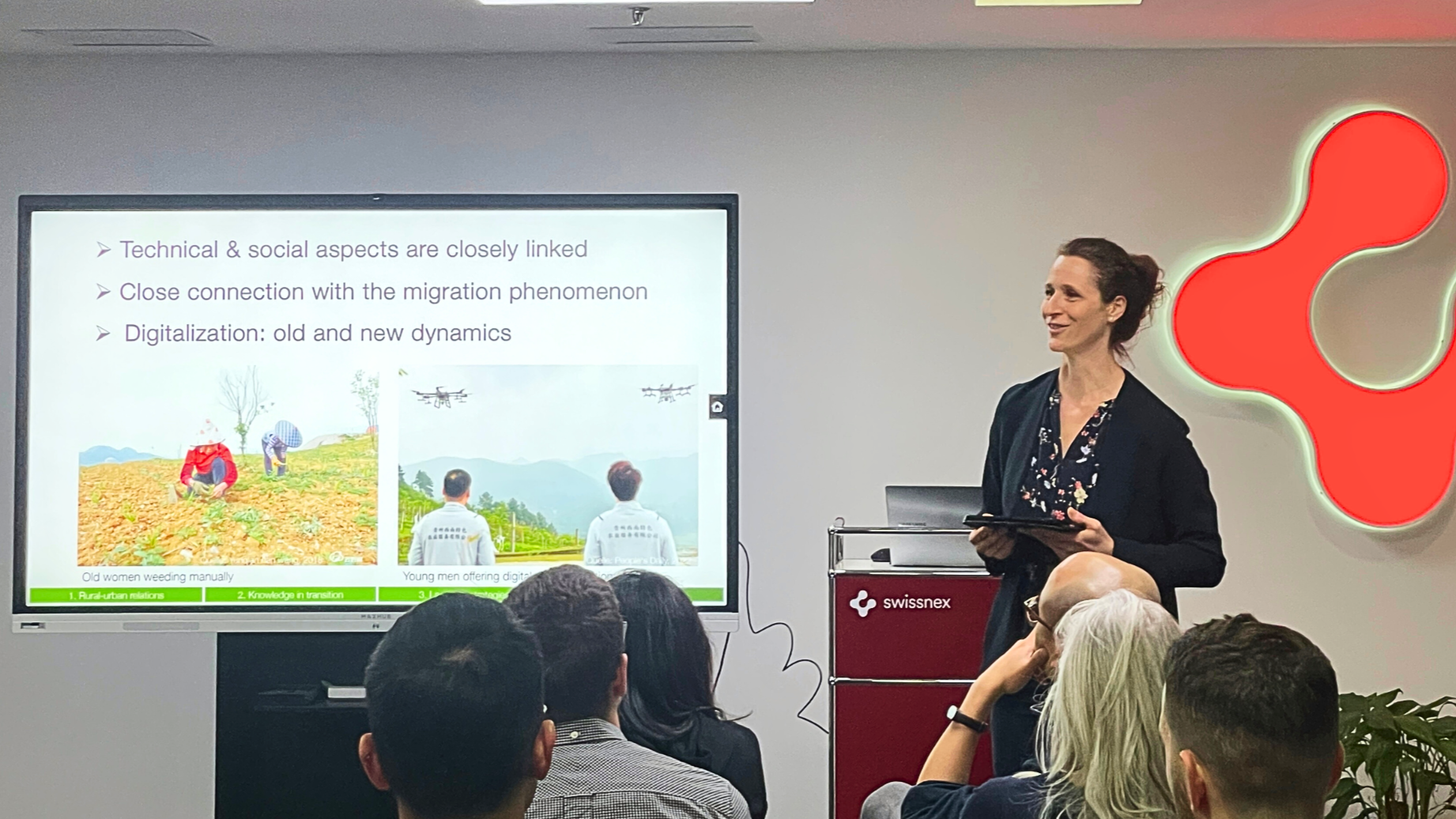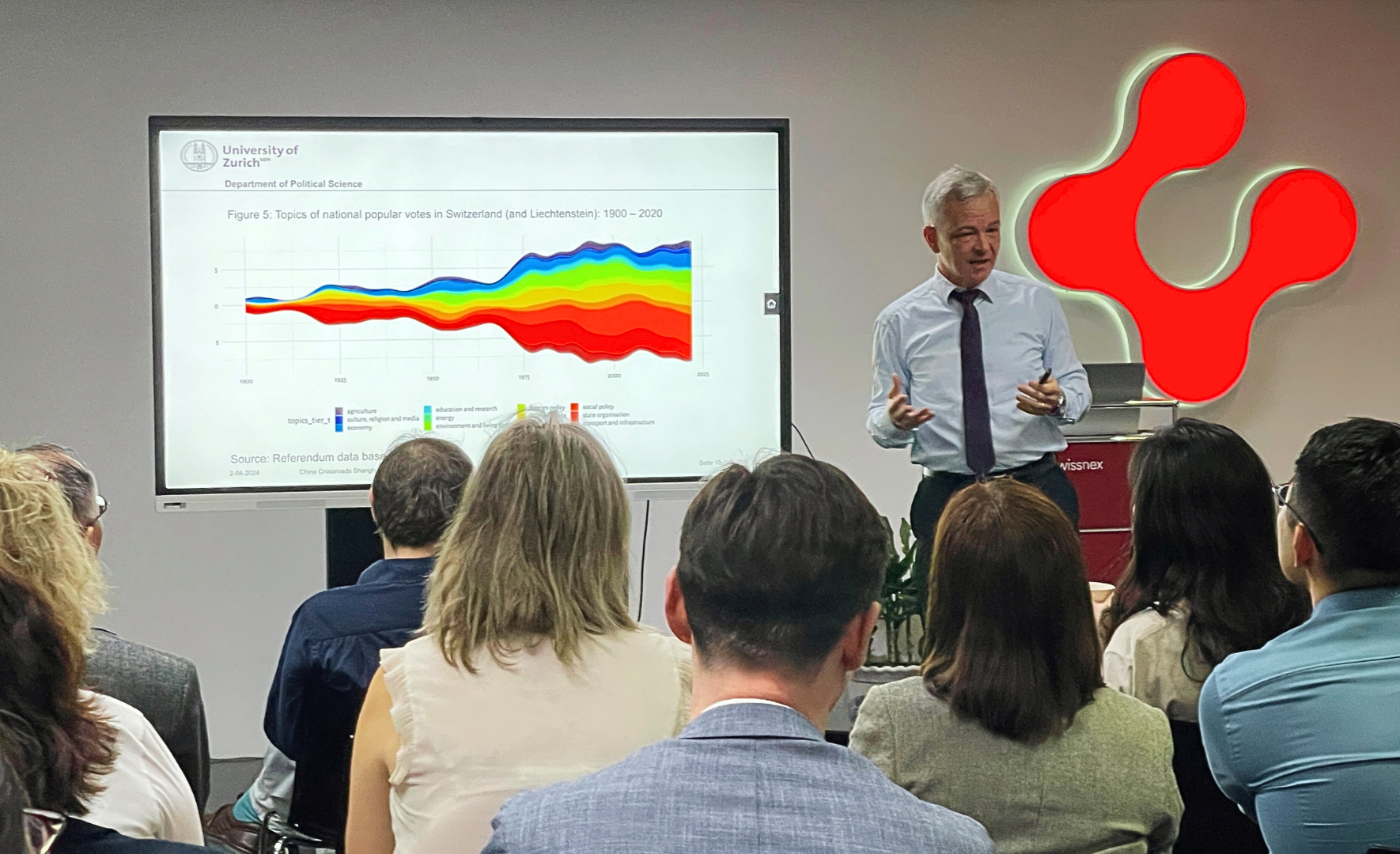UZH Experts Explore the Complexities of Migration and Governance at Swissnex Event in Shanghai
During the “China Crossroads” lecture series at Swissnex in Shanghai, UZH researchers Lena Kaufmann and Daniel Kübler presented their perspectives on the complexities of rural migration in China and the state of democracy in the world.

In her lecture, Lena Kaufmann, a UZH senior researcher and lecturer and soon-to-be SNSF Ambizione Fellow at the University of Fribourg, spoke about the challenges that rural Chinese face as they balance life between city work and maintaining their farms. Her presentation focused on how these families are coping with these changes and what strategies they are employing to succeed. Lena Kaufmann, with years of research as a sinologist and social anthropologist in China, highlighted the creativity and resilience of rural communities. "My research explores how rural Chinese households deal with the conflicting pressures of migrating into cities to work as well as staying at home to preserve their fields as a fall-back option. It provides rare insights into the rural side of migration and farmers' knowledge and agency, showing how rural households creatively make ends meet between outmigration and field preservation”, Lena Kaufmann summarized her talk.

In a subsequent lecture, Daniel Kübler, UZH Professor at the Department of Political Science and co-director of the Centre of Democracy Studies, shared his expertise on the political, societal, and economic impact of democracy, focusing on Swiss direct democracy. Daniel Kübler discussed the recent “World of Referendums” report, which is released by the UZH Center for Democracy Studies. He connected these ideas to global practices and their varied effects on societies. "Our insights from Switzerland's experience with referendums suggest that citizen participation helps to keep the tax state in check, reduces fiscal fraud, and increases life satisfaction. In other words: in Switzerland, direct democracy had a positive impact on economic development, citizens' attitudes towards the state, as well as feelings of happiness ", Daniel Kübler said.
Connecting Swiss experts with the global community
Swissnex in China acts as a hub for these academic exchanges. It is an initiative of the Swiss State Secretariat for Education, Research and Innovation and connects Swiss experts with the global community. Swissnex in China is part of the Swiss network that promotes international dialogue and partnerships in innovation. Through events like these, UZH and Swissnex work together to bring Swiss research and global perspectives to wider audiences.
Anne Nuria Boekhout